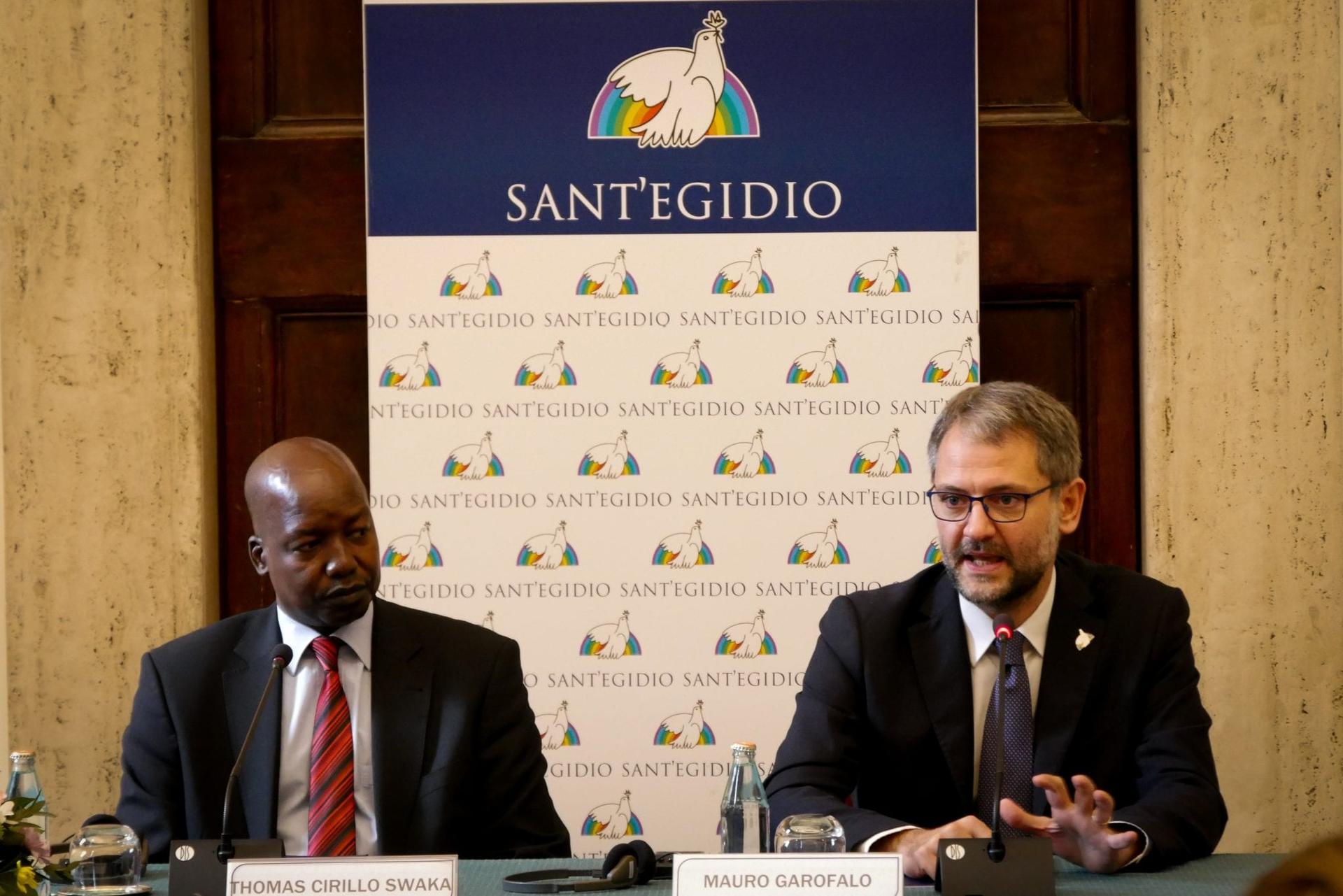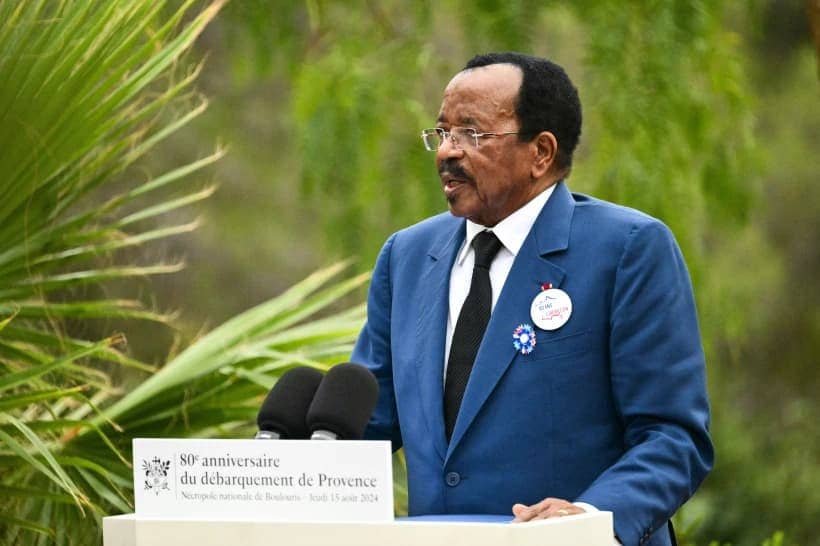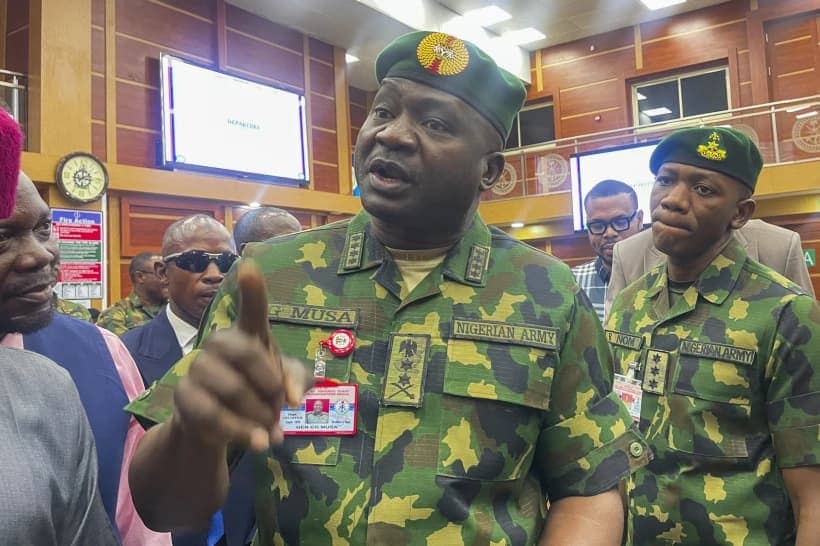Members of one of South Sudan’s main opposition coalitions met in Rome earlier this week, thanking Pope Francis for his continued support for the country and appealing to a politically influential Rome-based Catholic group to lend a hand in negotiations.
At the close of a three-day meeting at the Rome headquarters of the Sant’Egidio community, the South Sudan Opposition Movements Alliance called the meeting “constructive” and appealed for an end to the current impasse in the peace process.
The alliance has been opposed to the terms of a new peace deal between the government and other rebel groups aimed at ending nearly six years of civil conflict.
In a statement released Wednesday, coalition members said they are thankful “for the continuous and outstanding empathy and affection shown to the suffering people of South Sudan” by both Francis and the Archbishop of Canterbury, Justin Welby, who planned to visit the country together in 2017; however, security concerns kept the joint mission from happening. Should the situation improve, and the peace agreement be implemented, Francis and Welby are planning to visit South Sudan together in 2020.
RELATED: Pope, Anglican archbishop affirm desire to visit South Sudan together
The rebel coalition commended Sant’Egidio for their efforts in pursuing “a genuine and sustainable” peace in South Sudan, and they asked the community to “urgently engage with regional and international partners” in order to “make this dialogue a success.”
They also asked Sant’Egidio to continue engaging with the government and the signatories of the current proposed peace deal to help move the process along.
Under Francis, Sant’Egidio has been dubbed “the pope’s favorite movement,” since it pursues many of the pope’s most prized objectives, such as conflict resolution, defense of the poor, protection of the environment, opposition to capital punishment, and ecumenical and inter-faith dialogue.
In July, the community hosted members of South Sudan’s National Pre-Transitional Committee for a meeting aimed at carving out paths for the implementation of the country’s tenuous peace deal.
This week’s meeting with the South Sudan Opposition Alliance is the latest in the community’s effort to engage South Sudan’s leadership in promoting peace and fighting poverty in Sub-Saharan Africa.
The South Sudan Opposition Alliance is a coalition of nine political parties and armed groups which opposed the government of President Salva Kiir. It formed in February 2018 and seven months later, acceded to a revised peace deal with the government that also included the main rebel faction, the Sudan People’s Liberation Movement-in-Opposition.
However, not all members of the coalition were in favor of the deal, and it has since split into two groups: one in favor of the deal, and one against it. Coalition members who met in Rome this week were those opposed to the proposed accord.
At just eight years old, South Sudan’s short history has been marred by the civil war and the subsequent humanitarian crisis in which food shortages have soared, millions have been displaced and lack access to basic necessities.
Several attempts at a ceasefire failed until a deal was finally brokered in October 2018 and signed by South Sudanese President Salva Kiir and his main rival, Vice-President Riek Machar.
The conflict has been fueled by corruption, tribalism and poverty.
The official deadline to implement the deal was May 12, but both sides backed a six-month extension as they continue to work out details. Earlier this month, Kiir and Machar agreed to postpone forming a coalition government for an additional 100 days in order to resolve security and governance issues.
RELATED: As South Sudan religious leaders push peace, pope dangles a visit
In their statement, the opposition coalition insisted that ongoing conflict in South Sudan is “political in nature and requires a political solution” pursued through what they called a “constructive and genuine dialogue.”
Since the outset, the conflict has “deeply damaged the social fabric of the country,” they said, noting that so far 400,000 people have died and an additional four million have fled and are living as refugees, while 200,000 more South Sudanese remain internally displaced.
Members welcomed efforts made by several regional and international organizations to engage with non-signatory groups, and asked that a “political dialogue” be pursued which targets the root causes of the conflict, rather than seeking simple solutions that deal with the immediate issues, but which don’t resolve broader concerns.
In a statement to the press during a news conference Wednesday, General Thomas Cirillo Swaka of the National Salvation Front, insisted that “only through political dialogue and negotiation can the peace process advance and address the root causes of the conflict.”
Similarly, Italian layman Mauro Garofolo, chief of international relations for the Sant’Egidio community, said that to offer hope and confidence to refugees and those displaced, “it is necessary to include all forces involved in the crisis,” including those who take issue with the terms of the current peace agreement.
Follow Elise Harris on Twitter: @eharris_it
Crux is dedicated to smart, wired and independent reporting on the Vatican and worldwide Catholic Church. That kind of reporting doesn’t come cheap, and we need your support. You can help Crux by giving a small amount monthly, or with a onetime gift. Please remember, Crux is a for-profit organization, so contributions are not tax-deductible.














